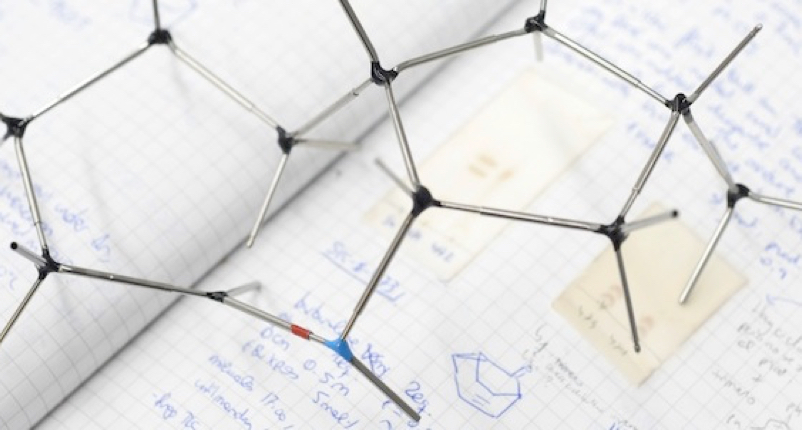In situ surface coverage analysis of RuO2-catalysed HCl oxidation reveals the entropic origin of compensation in heterogeneous catalysis
In heterogeneous catalysis, rates with Arrhenius-like temperature dependence are ubiquitous. Compensation phenomena, which arise from the linear correlation between the apparent activation energy and the logarithm of the apparent pre-exponential factor, are also common. Here, we study the origin of compensation and find a similar dependence on the rate-limiting surface coverage term for each Arrhenius parameter. This result is derived from an experimental determination of the surface coverage of oxygen and chlorine species using temporal analysis of products and prompt gamma activation analysis during HCl oxidation to Cl2 on a RuO2 catalyst. It is also substantiated by theory. We find that compensation phenomena appear when the effect on the apparent activation energy caused by changes in surface coverage is balanced out by the entropic configuration contributions of the surface. This result sets a new paradigm in understanding the interplay of compensation effects with the kinetics of heterogeneously catalysed processes.

D. Teschner, G. Novell-Leruth, R. Farra, A. Knop-Gericke, R. Schlögl, L. Szentmiklósi, M. González Hevia, H. Soerijanto, R. Schomäcker, J. Pérez-Ramírez, N. López
Nat. Chem. 2012, 4, 739-745
DOI:
Go to the journal

Let's create a brighter future
Join our team to work with renowned researchers, tackle groundbreaking
projects and contribute to meaningful scientific advancements



















